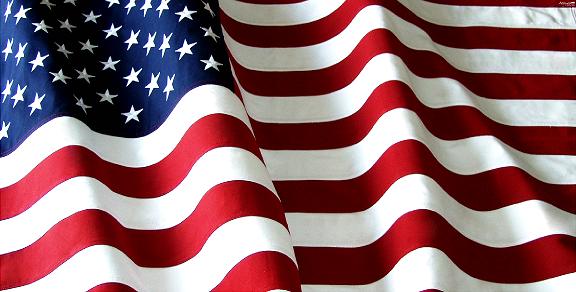The underlying theories in the economic systems of trade policy and climate change are similarly flawed in premises, in neither being able to predict the future or acknowledge the present. My point today is more to introduce a better rationale to explain the need for altering trade policy than to dispute the hoax of climate change, but in doing we may achieve a deeper understanding of each.
To begin with the word economy is from the Greek word oikonomia, literally meaning house law. The basic idea is defining how things move through an interconnected system. The word itself is a compound word from oikos, meaning house or family, and nomos, meaning distribution of food to people or grain to animals, and the principles of distribution. Therefore we see economy meaning the basic principles of how thing naturally move through a system, and the effects of the movement.
Let’s begin with the idea of nature as the most basic way systems interact, the underlying complexity, and then the attempts to control them. The first natural principle (law) in economic systems is the lack of something in one area will be followed by something rushing in to fill it. In each of these there is an attempt to find equilibrium but in the rush to fill there is also an undulation proportionate to the volume of the lack and the related speed of filling. (Supply and demand, or pressure systems.)
The problem is in thinking effects and intervention can be fully modeled with any degree of certainty. These system’s interactions themselves have been proven to be ever creating their own influences with the only certainty being their unpredictability. This is the heart of the matter – human intervention in the attempt to control or alter the natural courses can do little outside the short term because the first natural law will always eventually overcome and introduce the unpredictable. In addition this natural interaction occurs in real time and human intervention to force equilibrium into the system requires correctly predicting the future. Based on the evidence of history, mostly all human experience proves this an impossibility due to misdiagnosing the problem and following with a solution never able to achieve the desired effect.
In other words, in order to effect an economy, controlling or eliminate its natural cycles, one must predict the future effects by understanding what is occurring in the present and acting in a way to alter it in a desired direction. The fruitless misdiagnoses is by intention in our time mislabeling (PC) problems to insure any proposed solution is misdirect and therefore never able to solve the actual dilemma.
The intellect of man enables him with the capacity to see in the abstract and overcome his environment. The problem comes as his animal nature causes him to fail at it due to immediate lust (uncontrollable desire), and the pride induced ignorance that subdues his ability to change when needed.
This brings us to trade policy and failure of current conservative theories of free trade. When economists argue the theory of unrestricted foreign trade markets they seem to always refer to Milton Friedman’s analogy of how markets stabilize. It says that trade imbalances will always stabilize because they will always result in the selling country accumulating an overabundance of the buyer’s currency. This overabundance will then always cause their currency to lose value as the try to exchange it (buyer’s currency) for their own currency. This is said to then make their goods less competitive and therefore will cause a shift toward favoring the original buyer.
Let’s shift for a minute to understand US economic policy. We operate on a system called Keynesian Economic. It says that our economic output is proportionate to the amount of liquidity (cash available for use) in the economy. The US as policy intervenes (centrally controls) in this aspect of the economy by controlling the amount of cash available through setting (manipulating) interest rates. The policy makers for purely political reasons decided the natural fluctuations in the economy were too wide and they speculated that by controlling growth through interest rates they could keep the economy on a steady line of stable growth (seems to have been around 3.5% yearly growth in GDP).
I speculate that the political calculation was this: the central planners (democrat socialists and progressives) saw the economic swings as political liabilities and a threat to their ideas of a socialist utopia. It seemed that each time one of these larger natural economic down-turns occurred the people of the US would turn to electing republicans, who back then were considered to have alternative economic ideas (like lower taxes and reduced government frivolous spending) that would more likely lead to recovery. The flat line growth would eliminate the need for these other ideas counter to socialism. In their eyes it was the cure to the one major problem with socialism (it always runs out of other people’s money) and would be an endless supply toward utopia.
The failure we experience in 2008 was in great part atributable to thinking there was a never ending supply of money, the resulting bubble, and incorrect action by the central planners. As they tried to slow the economic exuberance by raising rates (reducing the cash supply to slow growth) they also failed to see or acknowledge the bubble. The bubble bursting caused a reduction in available cash at the same time as the effects of the Fed policy was kicking in to reduce it. The end was a liquidity crisis, and the resulting loss of almost half the world’s wealth in the form of loss of equity.
We may look at this again later but the point for now is in seeing how central planners can never see future events and when policy is so heavily reliant on correctly doing so there will always inevitably be catastrophic consequence. These are only exacerbated by refusal to abandon the policy and allow the system to naturally recover no matter the pain involved.
Our trade policy assumes imbalances will always naturally correct while ignoring the fact that central planners are manipulating the system to insure it doesn’t. (Free markets aren’t the problem. The problem is intervention by central planners and their intermixing of socialist controls.) One of the other first principles of economy (house law) is everyone’s first priority is their own house, and this law itself demands it be so. (This is why every time the dollar gets weak as a result of over abundance in China they devalue their currency to offset the decline and prop up the dollar. A strong dollar gives them and all our trading partners an advantage over domestic products. It is also why they dislike QE (Quantitative Easing – printing money to add to the supply not the value) because it devalues the US dollar.)
Let’s get back to our national economic principles and the underlying premise that economic growth is directly controlled by the amount of liquidity in the economy (cash available for use). Let’s also admit that by the Fed lowering interest rates and leaving them at near zero it has been trying to make cash more available. Let us also admit that in the face of this failing they then resorted to printing money (QE), which has also proven a failure to achieve reviving the economy and growth.
This begs the question why did these fail. First of all the solution did nothing to put “usable” cash into the economy. The infused cash first went to replace the lost equity of the largest financial institution, and then regulators also mandated the bank increase their liquidity reserves. These both rather than increasing cash in the economy instead sidelined it and thereby further reducing it.
Another major unspoken reason for a lack of cash is the trade imbalance. Using China as the example, if we are buying 300 billion dollars a year more from China than we are selling them and they are devaluing the Yuan so they can keep our dollars, that is taking 300 billion in cash out of the economy per year and further stifling our economic growth. This is on its face and according to Friedman’s economic arguments seem counter to orthodoxy. The truth is it is in China’s self interest (their house first) to keep our dollars and keep the dollar’s value high. In keeping our dollars (out of our economy) they depress economic growth and the ensuing and continued recession keeps the demand for lower priced goods (imports) high, while the strong dollar help perpetuate the status quo.
Open markets are the right’s version of the theoretical superior idea that has failed miserably in the practical application because it refuses to acknowledge human ingenuity to subvert it, and it refuses to alter policy in the response to the reality.
What is the fastest way to get usable cash back into OUR economy? Tax cuts!
The solution to our economic problems is to cut taxes, reduce the liquidity requirements of the banks, and the Fed should raise interest rates (accept the fact of the accompanying inflation and market decline). Prices and wages will rise, and the economy with run fee and swing wildly. This is the consequence of what we have wrought. A truly free market will eventually find its natural level again with stability and the natural fluxuations of a healthy economy.
We should put America first in monetary policy, trade, immigration, and national defense. For those wanting to stick with the failed policies of the past – vote for the Establishment. They are more than willing to wrongly prognosticate as long as it keeps them in power and control, even if the end is a loss of treasure and country.
Paid for by TimD2016 – Tim D’Annunzio for Congress

